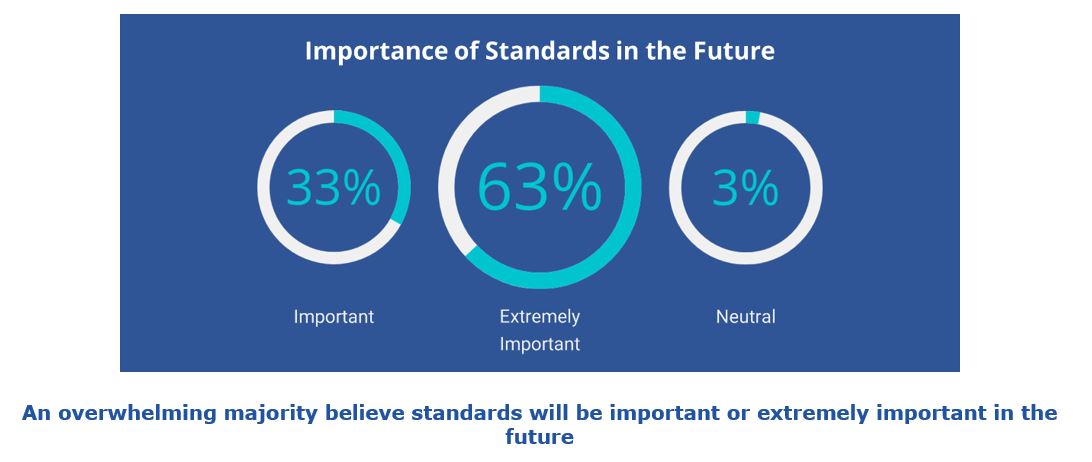

I have worked on standards for many years and in different countries, as a committee member and committee chair, but the one question I am asked time and again is, “what is the value of industry standards?”
I have my own opinions, but to try to understand how fellow standards makers feel in general about the value of standards and their future, ISA set up a survey in June 2020. The survey also asked how standards are being used and how useful they will be in the future.
We were surprised that almost 300 people replied to the survey, but the replies were very qualitative, with a lot of responses to open ended questions about the use of standards.
The survey response was skewed towards North America, but there was good input from South America and Europe. Likewise, engineers formed the largest group of respondents, but management and executives also gave their opinions. I n terms of company types, there was an even spread between asset owners, system integrators, and automation suppliers. Finally, as we have come to expect, over 65 percent of respondents had more than 20 years’ experience. On the plus side, that meant they had a lot to say.

Key findings from the survey included:
As over 75 percent of the respondents are ISA members, there were some comments on ISA’s standards and standards development process. These were mostly positive, believing that ISA’s standards are relevant to multiple industries, increase safety and security, and have global reach through alliances with organisations, such as IEC, ISO and API.
Respondents felt that the time to develop standards needs to be shortened and guidelines on how to use the standards would be very useful. The development time is an issue with all Standard Development Organizations (SDO) around the world as things change so rapidly now. As far as having guidelines, ISA has tried to address this with the development of technical reports (TR). We often say that the standard is the ‘what’ and the TR is the ‘how’.
A key group of people who answered the survey is management. These are the people who allow volunteers the time to attend the committee meetings. But what do THEY get from it? We received some good comments:
One end-user commented on the value of global standards organizations by saying they get value through “knowledge sharing, providing end user points of view, and input into the development of standards, gaining knowledge and understanding of the reasoning that goes behind the development of standards, to facilitate adoption and translation into site specifications and guidance documents”. Another said, “standards are the optimum method of networking, learning from subject matter experts and sharing your knowledge with others. Standards save money and resources by having learning from the experience of others instead of reinventing the wheel. Employers benefit by having their employees learn from subject matter experts (SME)”
Coming back to the value of standards, the respondents saw many areas of value created by using standards and standardized approaches. Here are some comments:
There were many more citations on the value of standards.
But, what of the future of standards?
An overwhelming majority of survey respondents believe that, in the future, standards will be “extremely important” (63 percent) or “important” (33 percent).
The current COVID-19 crisis has shown this to be more evident than ever. I have attended many webinars and meetings over the past few months where standards were front and center in the risk evaluation process, the management process, and now the return to work and recovery process.
Whether it’s because of the current crisis or in spite of it, many respondents would like to see better use of tools for the development and use of standards. I can say that this is at the forefront of a lot of discussions at the moment in ISA, IEC and other organizations. We have to give faster and easier access of standards to more people, and we have to have more end-user involvement. We need to see how they are using the standards and where the gaps are.
The next step in standards development is in the area of IoT and smart manufacturing. I am heavily involved in that work. Funny enough, as always, a lot of activity is going into the development of a common set of terms.
If you have any questions of comments please email me at wilkinsmj@outlook.com
Dr. Maurice Wilkins is Executive Advisor to Yokogawa’s Global Marketing HQ and has been in the automation industry for over 40 years. He is a former VP of ISA’s Standards and Practices Department, an ISA Fellow and a member or chair of many international standards committees.

